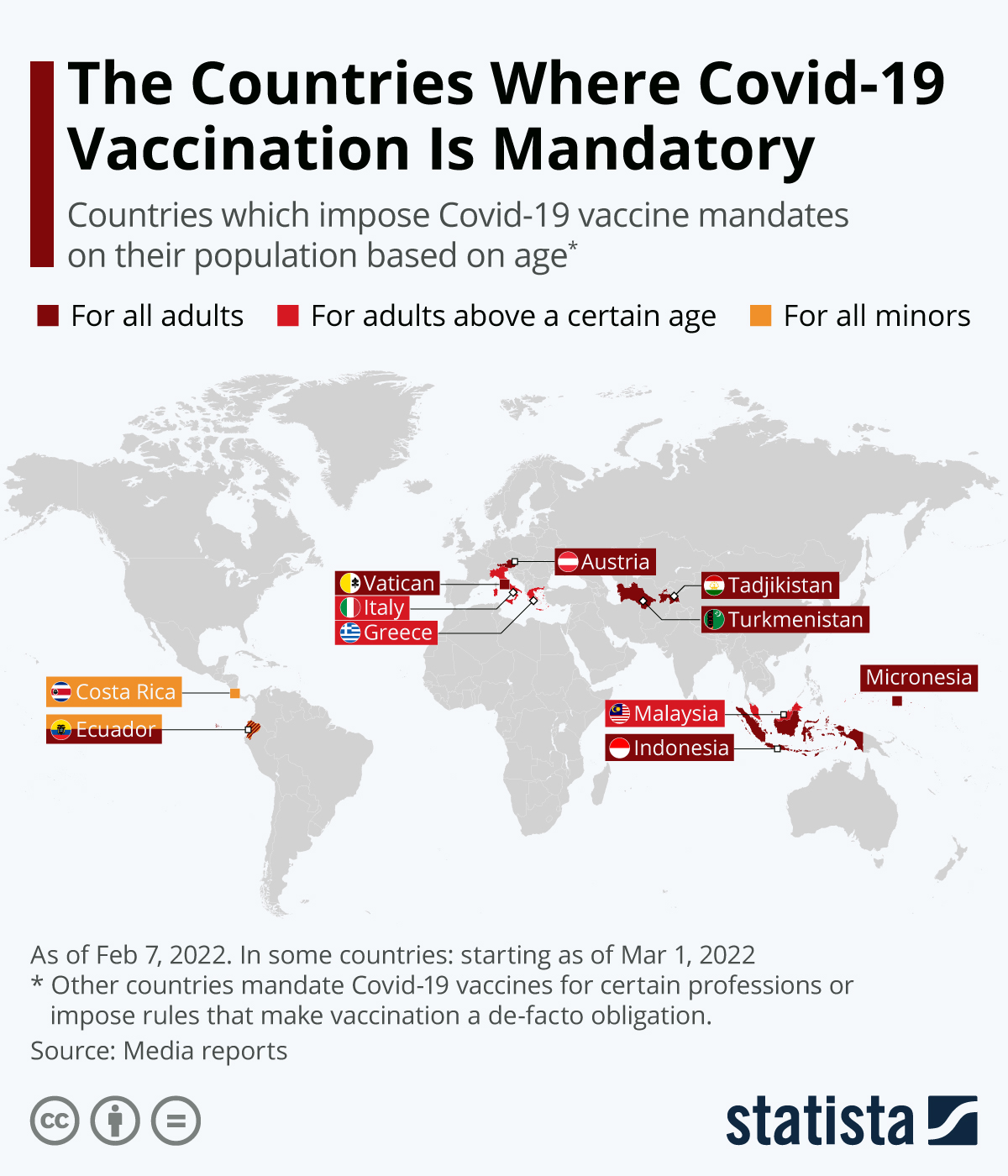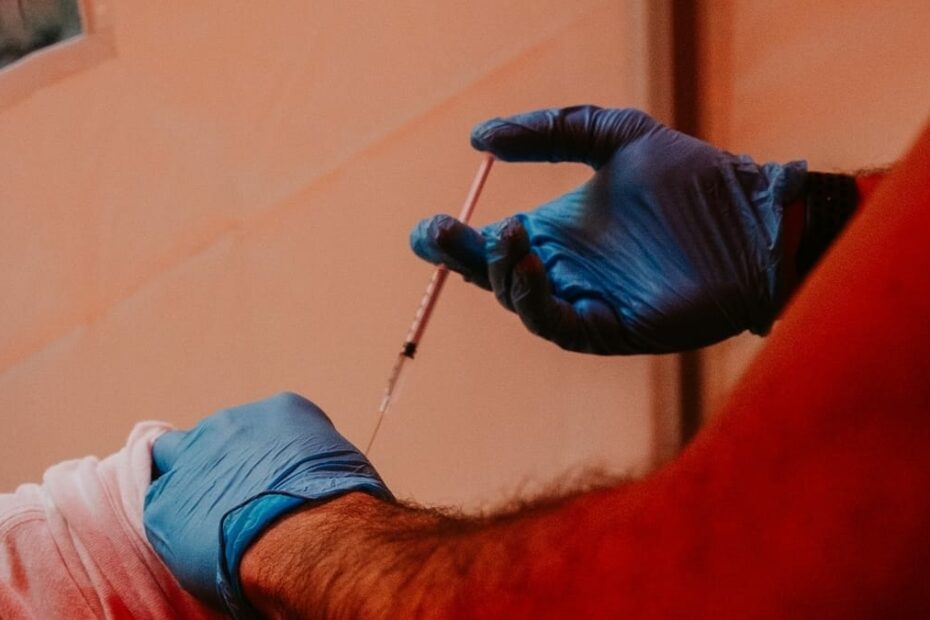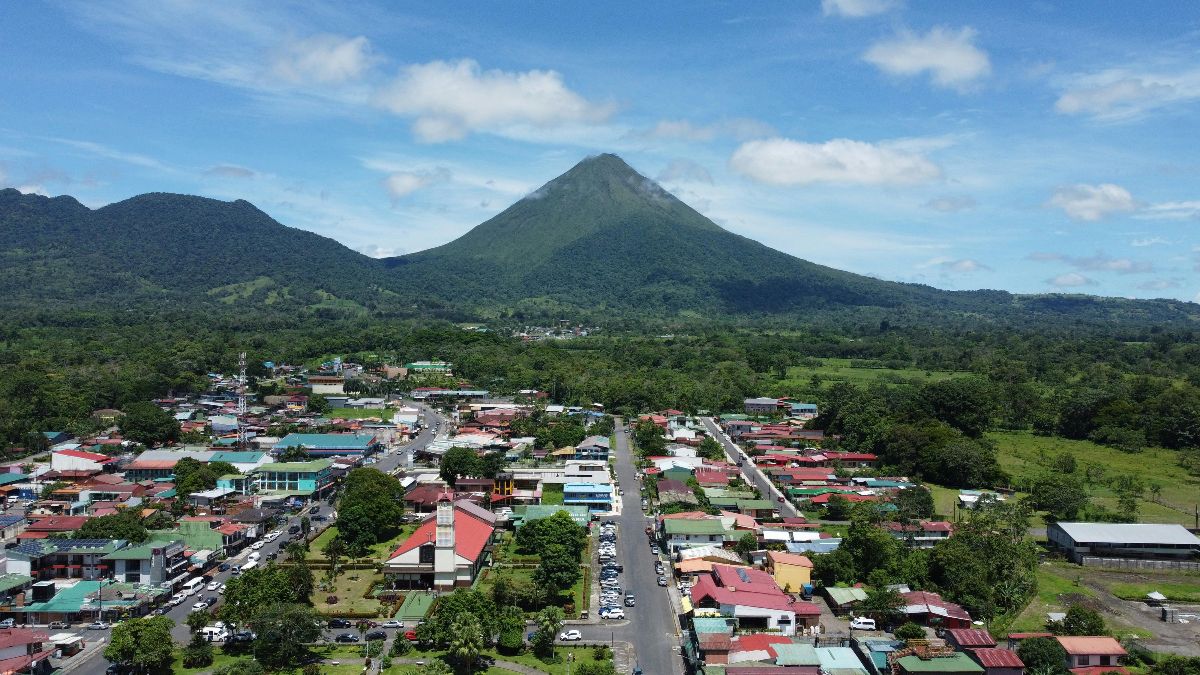Will Covid vaccines in Costa Rica become compulsory for everyone? If we were gamblers, we’d say no, not yet. Here’s why.
Today I saw an interesting post in the Facebook group Costa Rica for Expats:
“Our worker told me yesterday that Costa Rica is going to pass a law requiring everyone who lives here to be vaccinated, even if they’ve already had Covid. It was the first I’ve heard of that, but our Tico neighbors do usually have their finger on the pulse of what’s going on in the country. Have any of you heard about that?”
I wanted to use this space to look at the situation, and try to answer the question for this group member, although I admit I have no inside knowledge, and everything you’ll read here is nothing more than my opinion.
It’s an educated opinion, based on many years in Costa Rica, but just an opinion nonetheless. You can take it on board or discard it at will.
First let’s answer the direct question. “Have any of you heard about that?“
Speaking for myself, no, I haven’t. This is the first time I’ve seen or heard anything anywhere about Costa Rica passing a law to require Covid vaccines for everyone.
I know this is just a Facebook post on an expat group, nothing but gossip and speculation, but it’s the first time I’ve seen anything like this anywhere, either in the press, on social media, or in real life. But then, I don’t get out much anymore.
What I do know, is that when asked about this before, government officials have said Costa Rica won’t make Covid vaccines compulsory. But things change, though. I know that. Things evolve, and politicians make U-turns all the time, even in Costa Rica.
The bigger question, I guess, is will it happen? Will Costa Rica make the Covid vaccines mandatory for everyone?
My opinion is that it’s possible, but unlikely.
First, let’s look at the politics.
Costa Rica has an election coming up in February. Both the executive and legislative branches of government are up on the ballot. You can all-but-guarantee nobody wants to touch something as controversial as this going into an election. And if they say they do, they’re posturing.
And yes, making the Covid vaccine mandatory for everyone living in Costa Rica would be controversial, from both a health and a civil liberties point of view.
You can be on one side or another of this issue all you want. But the fact remains, few politicians want to stick their head over the parapet on this five months before an election.
Central America elections to watch in 2021 (El Salvador, Belize, Nicaragua, Honduras with an honorable mention to Costa Rica)#centralamerica #elections2021https://t.co/rzJWxWty4z
— CentralAmericaLiving (@VidaAmerica) January 12, 2021
Right now, according to Statista, there are only two countries in the world (well, three if you count the glorified office that is the Vatican City) forcing all its citizens to get vaccinated.
Those countries are Turkmenistan and Tajikistan, both in Central Asia.
Neither Turkmenistan nor Tajikistan are know for their liberal values and love of democracy. Both countries are dictatorships, effective one-party states with authoritarian, basket-case rulers.
The presidents of Turkmenistan and Tajikistan can do what they want, unencumbered by the wished of their people. The weird, psychotic personality cults they’ve cultivated are closer to North Korea than Costa Rica.
There is zero chance Costa Rica wants to be the first country in the western world to follow in the footsteps of countries like this. It’s just not going to happen. At least not in my humble opinion.
Mandating vaccines and taking away an adults’ right over what he or she can put into their bodies is the type of thing Cuba and Venezuela would do, not Costa Rica. Other western democracies would do well to understand this, too.
 You will find more infographics at Statista
You will find more infographics at StatistaWhat Costa Rica might do is follow the example of other countries in the map you see above.
France, Russia, the United States, and others have made vaccines mandatory for different professions or to enter certain places.
The above map, actually, is a little out of date. Since it was published in July, a lot more countries have introduced mandatory vaccinations in some form or another. Only the dictatorships of Turkmenistan and Tajikistan have them mandated for everyone, though.
So there’s every chance Costa Rica might make certain professions, say healthcare workers, teachers, government officials, etc. get vaccinated. There’s been some small noise about doing something like this, but there’s also been a lot of pushback.
For now, I reckon it’s a nonstarter, at least on this side of the election, although I could be wrong. I’m wrong about a lot of things.
Where does Costa Rica stand on the legality of mandating vaccines in the first place?
This is interesting. Costa Rica does mandate vaccines, and has done so for a long time. Outlier Legal Services wrote a great blog on the subject a few years ago, way before Covid, essentially outlining the laws in place regarding vaccinations in Costa Rica.
Furthermore, in 2019, after an expat family brought their unvaccinated kids into the country with measles, Costa Rica said it would start requiring anyone seeking residency to either get vaccinated against a host of illnesses, or provide proof of vaccine. So far though, Costa Rica hasn’t enforced this ruling.
I’m unsure why they haven’t enforced this ruling. My guess is that the pandemic came. Costa Rica closed down, and no-one was processing any residency applications.
But don’t rule it out. The ruling came in before Covid, and there’s every chance Costa Rica might want a Covid vaccine as part of your residency application in the future.
VACCINATIONS, THE LAW IN COSTA RICA http://t.co/g6YdXFkhm6
— Outlier Legal (@OutlierLegal) February 15, 2015
Anyone who’s traveled between Costa Rica and South America knows about the yellow fever vaccine rule.
You’re not allowed to enter Costa Rica from certain countries (or certain regions in certain countries) where yellow fever is present unless you’ve been vaccinated against that disease.
I’ve received two yellow fever vaccines over the years (they last ten years) and have had to show my certification to enter Costa Rica many times. They won’t even let you on the plane in Lima or Bogota or wherever without it. I’ve seen people turned away with my own eyes.
So it’s possible Costa Rica might go down that road with foreigners entering the country, whether they’re on vacation or living here. Again, don’t rule it out.
One interesting point about the yellow fever vaccine is that it doesn’t apply to Costa Rican citizens. They don’t need to have the vaccine to enter their country because that would be unconstitutional.
Article 22 of Costa Rica’s Constitution says: “Every Costa Rican may move about and stay anywhere within the Republic or abroad, provided he is free from any liability, and may return whenever it may be convenient to him. No requirements may be imposed on Costa Ricans that prevent them from entering the country.”
Requiring a vaccine – whether against yellow fever or anything else – for a Costa Rican citizen to enter their country would be an imposed requirement, thus unconstitutional.
Which makes the yellow fever requirement for everyone else kind of pointless, although there’s a caveat to that, which I’ll explain: Most Costa Ricans don’t have anywhere near the vaccine hesitancy we see in North America and Europe. I find it hard to believe a Costa Rican would go to place where yellow fever exists without a vaccine, although I could be wrong.
And I know this is anecdotal, but I’ve never once met a Costa Rican who’s been to South American who isn’t vaccinated against yellow fever. Not one. But still…
The point is though, if Costa Rica was to force a Covid vaccine on Ticos abroad to enter their country, they would need to amend the Constitution. That’s not impossible, but not likely in the short term.
I was denied entry to Costa Rica because I arrived from Colombia without a yellow fever vaccine. Come on doc, do better. https://t.co/tKZ6ICceX8
— Scotty P (@sparks33152) April 5, 2021
And then there’s the question about who Costa Rica is vaccinating.
Costa Rica doesn’t have an endless supply of Covid vaccine. It’s spending a lot of money it doesn’t have on some vaccines, and relying on COVAX and donors for others.
So far, Costa Rica has put over four million vaccines into arms. But to vaccinate “everyone” (including children), it will need a lot more vaccine. Especially if it rolls out the third booster shot everyone’s talking about. How’s that going to happen?
In July, President Alvarado said Costa Rica would begin vaccinating undocumented immigrants. The news wasn’t widely reported. It was the equivalent of putting bad news in the bottom corner of page 6 on a Friday night. He knew the proposal wouldn’t be popular, and he was right.
The suggestion went down like a lead balloon, bringing up the usual anti-Nicaraguan xenophobia, with many people demanding Costa Ricans get vaccinated first.
You haven’t seen much more about this since, and I suspect the government doesn’t want to bring it up again.
Whether the plan to vaccinate the undocumented is underway or not, I don’t know. But I do agree with the president about it. Vaccinating an illegal immigrant is way cheaper than treating the same person should they get hospitalized with Covid. That’s simple economics.
#ÚltimaHora Presidente @CarlosAlvQ anuncia orden de vacunar a personas indocumentadas.
Están buscando donaciones y esta semana esperan anunciar el mecanismo con el que se van a inmunizar. pic.twitter.com/LEArX1sBPX
— Amelia Rueda (@ameliarueda) July 27, 2021
But to put in place a law of mandatory vaccination for everyone, Costa Rica will need to vaccinate everyone. That means all illegals, all foreigners, everyone. And that’s not a popular point of view right now.
Next door in Panama, they’re vaccinating everyone who wants it, whether they’re a tourist, an undocumented immigrant, or whoever. All you have to do is apply. Costa Rica will need to do the same thing if it mandated vaccines for all.
Yet another reason for lawmakers to kick the whole down the road for the next guys to deal with after the election. Who wants that hassle now?
I don’t know if this article answers the question put by the member of the Facebook group.
If I was a gambler, based on what I’ve said here, I’d bet no, Costa Rica won’t pass a law requiring Covid vaccination for everyone who lives here. At least not now. Not yet.
But next year? Who can say?
James Dyde is the editor of centralamerica.com. He lives in Escazu, Costa Rica.




